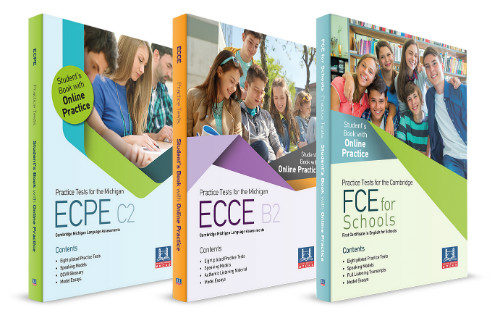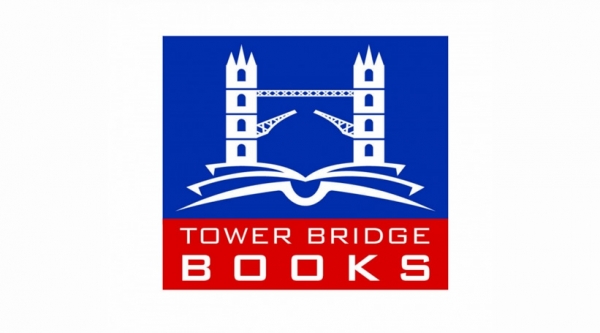He has written a wide range of ELT books, and contributed articles to newspapers and online journals at home and abroad. He is currently Chief Editor of Tower Bridge Books. Among other things, he is interested in blended learning.
What is the philosophy of TOWER BRIDGE BOOKS?
Tower Bridge Books specialises in English Language Teaching and is committed to providing teachers, students, and schools excellence in state-of-the-art educational material. With over a quarter of a century expertise in the ELT sector, the innovative material of Tower Bridge Books caters for the needs of students in the 21st century by introducing blended learning at its best. Combining traditional teaching techniques with computer-mediated activities, our material not only enhances students’ performance, but also provides teachers and schools with only the best in educational tools. One of these tools is our online platform. Tower Bridge Books intends to build bridges between people, races, and cultures, trying to find common ground through its unique English Language Teaching material, and assist in creating equal opportunities for everyone.

Over the years, you have written a wide range of ELT books. Would you like to tell us a few things about the ones recently published by Tower Bridge Books?
The spearhead of this new endeavour are the ECPE and ECCE Practice Test books that have recently come out. These are not merely test books. They are designed in such a way as to be used in a traditional classroom, in a one-to-one session, even as reference material for self-study. They are not meant to be used merely as test books. The exercises, the passages, the everyday and academic language used throughout their pages help boost students’ vocabulary, and enhance critical thinking.
As regards the Student’s Book, both ECPE and ECCE books have been piloted and they provide a glossary, sample essays, authentic listening material. Both these books are grammar- and vocabulary-boosters, that’s why they are bestsellers! They cater for the needs of today’s students through challenging grammatical and lexical items and interesting topics. At Tower Bridge Books, we are not interested only in preparing students for an exam. Rather, we want them to consolidate grammar and vocabulary at B2 and C2 levels, in order to communicate both orally and in writing in real-life situations, not only for the purposes of passing a test. Of course, having worked on these books, students will feel that exams are plain sailing.
With regard to Teacher’s Book, apart from the glossary, the sample essays, and the authentic listening material found in the Student’s Book, what is most important are the annotations provided in the Teacher’s book that do not simply give the right answers, but explain why something is wrong. These annotations form the basis for the online platform I will explain to you later on. By means of these annotations, teachers are given some guidelines as to how to explain various thorny areas of grammar and vocabulary.
Of course, the Online edition of either ECPE or ECCE test book showcases blended learning. This is meant to be used together with the online platform.
What is so special about the online platform?
What is special is that Tower Bridge Books opens a group for the teacher, who then has access to his or her students’ progress. Thanks to this innovative, state-of-the-art platform, the teacher can see how and when students complete each test, as well as the scores they get. Certainly, individualised learning is ceded pride of place here because the teacher examines his students’ mistakes, and reinforces their grammar or vocabulary, depending on their needs. The online platform provides full report on wrong answers. Every time a student completes a test, he or she goes back and takes a look at the annotations that guide him as to the right and wrong answers. This helps the student see exactly what went wrong and study the grammatical rule or the usage and use of any given vocabulary item. Inside the classroom, after students have completed a test, the teacher can highlight and make good use of the specific problematic areas through remedial work. We are geared to learn through our mistakes, and that’s exactly what this platform draws upon.
Can students repeat the same test, or is all this a one-off process?
Students can repeat the same test again and again until they have consolidated all the grammar and vocabulary needed at each level.
Some people would argue that all this is time-consuming. What is your take on that?
Learning takes time, but this doesn’t mean it’s time-consuming. Let me give you an example: Listening, which usually takes one academic hour in class, can be done at home, thus saving quality time for the teacher to spend individually with the students. They can devote more time in class to productive skills, like speaking and writing, which is sorely needed.
What is the future of education?
A happy marriage between traditional methods (we all need to play while learning, we all need to do some paper-and-pencil exercises) and new technologies (from an early age, students use tablets, smartphones, interactive whiteboards). It is imperative that we strike a balance between the two. A heavy reliance on either is not conducive to learning.







